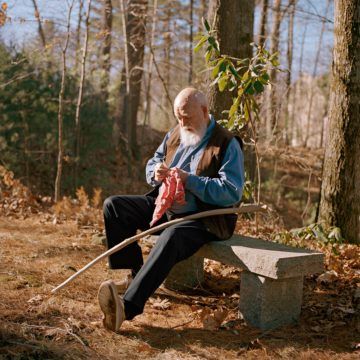Joshua Rothman in The New Yorker:
 Four billion years ago, Earth was a lifeless place. Nothing struggled, thought, or wanted. Slowly, that changed. Seawater leached chemicals from rocks; near thermal vents, those chemicals jostled and combined. Some hit upon the trick of making copies of themselves that, in turn, made more copies. The replicating chains were caught in oily bubbles, which protected them and made replication easier; eventually, they began to venture out into the open sea. A new level of order had been achieved on Earth. Life had begun.
Four billion years ago, Earth was a lifeless place. Nothing struggled, thought, or wanted. Slowly, that changed. Seawater leached chemicals from rocks; near thermal vents, those chemicals jostled and combined. Some hit upon the trick of making copies of themselves that, in turn, made more copies. The replicating chains were caught in oily bubbles, which protected them and made replication easier; eventually, they began to venture out into the open sea. A new level of order had been achieved on Earth. Life had begun.
The tree of life grew, its branches stretching toward complexity. Organisms developed systems, subsystems, and sub-subsystems, layered in ever-deepening regression. They used these systems to anticipate their future and to change it. When they looked within, some found that they had selves—constellations of memories, ideas, and purposes that emerged from the systems inside. They experienced being alive and had thoughts about that experience. They developed language and used it to know themselves; they began to ask how they had been made.
This, to a first approximation, is the secular story of our creation. It has no single author; it’s been written collaboratively by scientists over the past few centuries. If, however, it could be said to belong to any single person, that person might be Daniel Dennett, a seventy-four-year-old philosopher who teaches at Tufts. In the course of forty years, and more than a dozen books, Dennett has endeavored to explain how a soulless world could have given rise to a soulful one. His special focus is the creation of the human mind.
More here.
